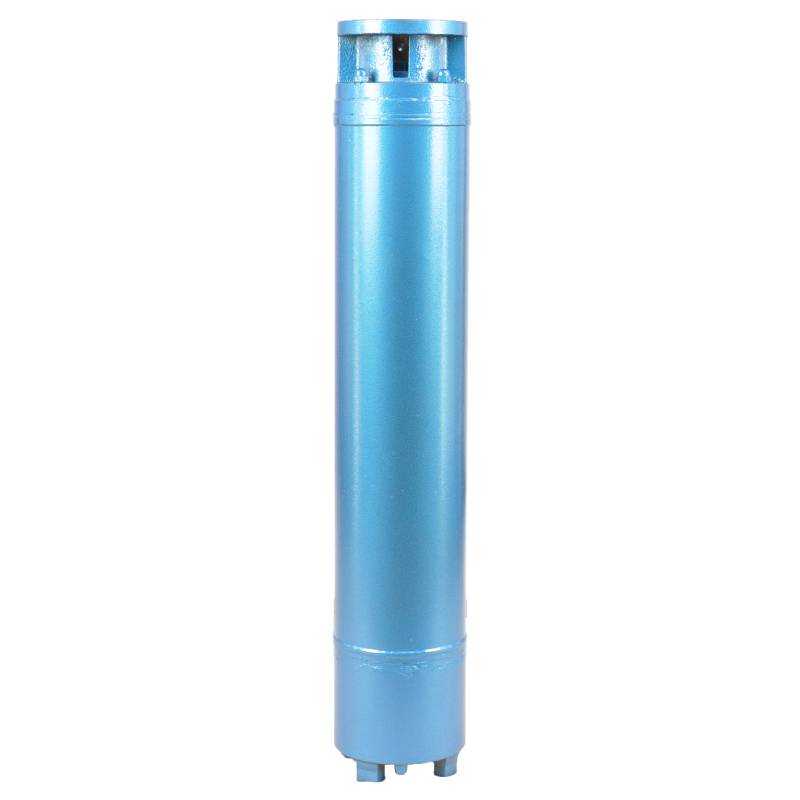Jul . 26, 2024 15:39 Back to list
Exploring the Efficiency of Variable Speed Deep Well Pumps for Sustainable Water Management Solutions
Variable Speed Deep Well Pumps Revolutionizing Water Extraction
In the realm of water extraction technology, variable speed deep well pumps have emerged as a transformative solution for various applications, including agricultural irrigation, municipal water supply, and industrial processes. These pumps are engineered to operate efficiently at varying speeds, allowing them to match the demand for water flow more closely, resulting in improved energy efficiency and operational effectiveness.
One of the most significant advantages of variable speed deep well pumps is their ability to adjust motor speed according to the required flow rate. Traditional pumps typically operate at a fixed speed, which can lead to energy wastage, especially when the demand for water fluctuates. In contrast, variable speed pumps utilize advanced control systems and frequency drives to modulate the motor speed, ensuring that the pump operates only as fast as necessary. This not only conserves energy but also reduces wear and tear on the pump components, potentially extending its lifespan.
The utility of variable speed deep well pumps is particularly evident in agricultural applications, where water demand can vary significantly throughout the growing season
. By using these pumps, farmers can optimize their irrigation schedules, ensuring that crops receive the right amount of water without over-irrigating. This precision in water delivery contributes to better crop yields and reduced water wastage, aligning with sustainable agricultural practices.Moreover, in municipal water systems, variable speed pumps can handle peak demand periods more efficiently. During times of high water use, such as during summer months or major events, these pumps can ramp up their output, ensuring a steady supply of water to residents. Conversely, during off-peak times, they can slow down, reducing energy consumption and operational costs. This flexibility is essential for modern water systems that are often under pressure due to increasing populations and changing climate conditions.
variable speed deep well pump

Another noteworthy benefit of variable speed deep well pumps is their contribution to system stability. By providing a more consistent flow rate and pressure, these pumps help to minimize water hammer effects and pressures spikes that can cause damage to piping and infrastructure. This results in lower maintenance costs and a longer lifespan for the entire water delivery system.
In terms of installation and integration, variable speed deep well pumps are relatively straightforward to implement. They can often be retrofitted into existing systems without the need for extensive modifications. This adaptability makes them an attractive option for upgrading older systems to enhance performance and efficiency.
However, like any technology, variable speed deep well pumps come with challenges. Initial costs can be higher compared to traditional fixed-speed pumps due to the advanced control systems and variable frequency drives involved. Nonetheless, the long-term savings on energy costs and increased reliability typically offset these initial investments. Additionally, proper training and maintenance are crucial to ensure optimal performance and longevity of the pump system.
As the world faces growing challenges related to water scarcity and energy consumption, the role of variable speed deep well pumps will become increasingly vital. By providing a more efficient, flexible, and reliable means of water extraction, these pumps are helping to drive a shift towards more sustainable water management practices. With ongoing advancements in technology, we can expect to see even greater improvements in performance and efficiency, making variable speed deep well pumps a key component in the quest for responsible water resource management in the future.
-
Submersible Water Pump: The Efficient 'Power Pioneer' of the Underwater World
NewsJul.01,2025
-
Submersible Pond Pump: The Hidden Guardian of Water Landscape Ecology
NewsJul.01,2025
-
Stainless Well Pump: A Reliable and Durable Pumping Main Force
NewsJul.01,2025
-
Stainless Steel Submersible Pump: An Efficient and Versatile Tool for Underwater Operations
NewsJul.01,2025
-
Deep Well Submersible Pump: An Efficient 'Sucker' of Groundwater Sources
NewsJul.01,2025
-
Deep Water Well Pump: An Efficient 'Sucker' of Groundwater Sources
NewsJul.01,2025
-
 Submersible Water Pump: The Efficient 'Power Pioneer' of the Underwater WorldIn the field of hydraulic equipment, the Submersible Water Pump has become the core equipment for underwater operations and water resource transportation due to its unique design and excellent performance.Detail
Submersible Water Pump: The Efficient 'Power Pioneer' of the Underwater WorldIn the field of hydraulic equipment, the Submersible Water Pump has become the core equipment for underwater operations and water resource transportation due to its unique design and excellent performance.Detail -
 Submersible Pond Pump: The Hidden Guardian of Water Landscape EcologyIn courtyard landscapes, ecological ponds, and even small-scale water conservancy projects, there is a silent yet indispensable equipment - the Submersible Pond Pump.Detail
Submersible Pond Pump: The Hidden Guardian of Water Landscape EcologyIn courtyard landscapes, ecological ponds, and even small-scale water conservancy projects, there is a silent yet indispensable equipment - the Submersible Pond Pump.Detail -
 Stainless Well Pump: A Reliable and Durable Pumping Main ForceIn the field of water resource transportation, Stainless Well Pump has become the core equipment for various pumping scenarios with its excellent performance and reliable quality.Detail
Stainless Well Pump: A Reliable and Durable Pumping Main ForceIn the field of water resource transportation, Stainless Well Pump has become the core equipment for various pumping scenarios with its excellent performance and reliable quality.Detail
